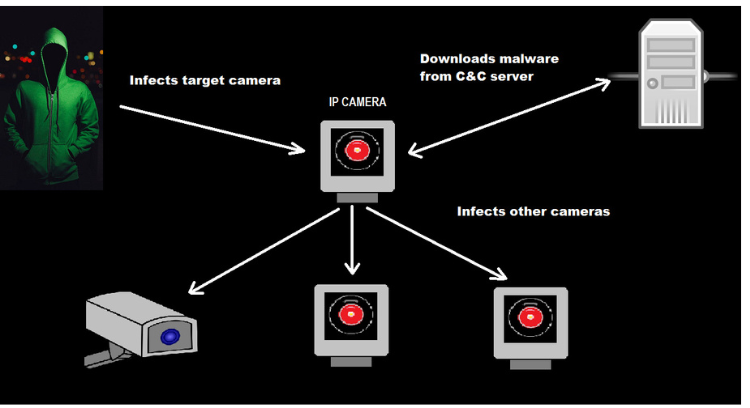Verizon Voice ID Class Action: Navigating Data Rights
With all the commotion it received, the class action lawsuit versus Verizon Voice ID raises pertinent questions related to privacy issues and consumer welfare. Pressing concerns over how users’ data might be handled keep on rising about voice recognition applications. This is a discussion where the class-action lawsuit will be reviewed in more detail, what it poses for Verizon, and voice recognition technology. More and more people know their rights as consumers, hence the need to understand this class action.
What is Verizon Voice ID Class Action?
Verizon Communications, Inc. has been sued over its unlawful use of voice recognition technology without first asking for permission from its users. We are concerned about privacy breaches and the collection of personal information without permission.
Events before the class action
This case resulted from reports that Verizon used voice recognition features in ways customers didn’t fully understand or agree to. Many users signed up for the service under the impression that their voice data was being collected for more reasons than what was explained. This has led to anger and court action due to concerns over the lack of openness.
As technology changes rapidly, companies are introducing new features that make use of advanced technologies like voice recognition and artificial intelligence. The consequences can be very bad if these features invade people’s privacy. Since more people know their rights when it comes to data use, cases like the Verizon Voice ID class action are likely to become more common.
Notable Claims in the Class Action
The plaintiffs in the Verizon Voice ID class action case make several important claims, which raise important concerns about protecting consumers and keeping personal information private.
1. Lack of Knowledge Regarding Consent
The most common claim is that Verizon did not have permission from the users before it activated the Voice ID feature. The customers state that they were not given sufficient information about how their voice data would be used, leading to the misuse of private personal information.
2. Unlawful collection of information
This also included a very big problem—the unauthorized gathering of voice data. The lawsuit further mentions that Verizon violates privacy laws and breaks trust by recording and retaining voicemails without proper permission from a user. How the telecommunications business is gathering data will give me something to think over and wonder about.
Many people think that having secret conversations with their devices using their voices is normal. However, if businesses take advantage of this trust, the effects can be very wide-reaching. Gathering private data without permission can lead to the misuse of sensitive information, threatening the safety and privacy of consumers.
3. Invasion of privacy protections
Additionally, the class action case highlights the potential privacy invasion obligations. Customers claim that Verizon used their speech data in unexpected ways, violating their rights. Not only does it hurt the individual, but the breach of privacy also sets a bad example for the business.
Cybersecurity breaches affect people beyond those affected. Thus, people might use fewer new tools because they distrust service providers more. Such increased mistrust could prevent people from developing new ideas and progressing on useful technologies.
Class Action Effects on Consumers
The Verizon Voice ID class action has implications beyond the law field. As more customers learn about their rights, this lawsuit should make businesses that deal with personal information pay attention.
1. Growing consumer awareness
Class action lawsuits teach people more about their privacy rights. This informs the people about how one’s data is being used and the need to make service providers more open about it. In that regard, increased knowledge should be able to guide people to make the right choices in the future.
Because customers are becoming more educated, they may begin to scrutinize the terms and conditions of digital services. People can now decide what is best for them, especially when it comes to data privacy.
2. Possible Policy Changes in Action
Following the case, Verizon, among other enterprises, might revise the way that they collect data and protect privacy. To regain public trust, an enterprise might raise the bar regarding easier consent and manipulation of data usage. In a telecommunication venture, this transformation might lead to more transparency.
For instance, voice recognition may become easier for companies to permit or deny; businesses can contribute to the company’s openness and trust with clients by making those procedures user-friendly.
3. Wider impact of the voice recognition technology
More broadly, the Verizon Voice ID class action affects the industry in voice recognition technology. Due to this fact, privacy-conscious consumers may now scrutinize businesses’ data practices more closely. Strict regulations may arise if voice data collection, storage, and usage are scrutinized.
If people complain, lawmakers and regulatory organizations may make it harder to obtain personal information without permission. The end result would be better privacy for customers because the law would set new standards for how tech companies handle private data.
In the Future, What to Expect
Various significant occurrences are anticipated within the Verizon Voice ID class action as it unfolds. Awareness of such outcomes can help consumers better understand how to maneuver through this situation.
1. Litigations
Class action lawsuits involve a lot of discovery and, quite probably, settlement talks. After both sides present their evidence, the court determines if the charges are true. Whatever the case is, this case could set important law standards.
Assuming the court rules with the plaintiffs, this may result in a resultant effect on other companies with questionable data use facing litigation as well. The case may also change how courts interpret privacy rules in this modern world.
2. Actions by Consumers
Meanwhile, the customers should keep learning about their rights. If you feel that someone has misused your voice data, it’s crucial to seek legal help and understand your options. Many law firms are offering free consultations to the affected people.
Members should also monitor their accounts and change their private settings as needed. By taking proactive steps, individuals can reduce possible risks and protect their data.
3. Industry Response
The telecommunications sector will also be paying close attention to the Verizon case. Similar cases could lead other businesses to improve their privacy practices, and a more privacy-conscious approach could spread throughout the business.
In response to this class action, companies may spend more on better worker training about data privacy and ethics. More money could also be spent on studying safer and clearer technologies.
Voice Recognition Technology in a Fewer Areas
Understanding the Verizon Voice ID class action means examining how voice recognition technology is used daily. The growing use of voice-activated devices raises privacy and safety issues.
1. The rising voice technology
Voice recognition has rapidly increased in recent years. Consumers today rely on technology such as voice-activated smartphones and Amazon’s Alexa or virtual helpers to gather much information.
The convenience of voice-activated services often overshadows the potential privacy issues. Customers may not be fully aware of the impact of using these technologies, so businesses should be transparent and honest.
2. Consumer Trust and Privacy Concerns
Consumers may opt to stop using technologies that they feel invade their privacy as trust in them decreases. Because of this trend, some businesses may lose customers and image if they do not put consumer rights first.
3. The future of rules and regulations
Regulations such as this could require firms to explain how they are using the data and obtain users’ consent before doing so. This new regulation development could lead to ethical handling of technology and consumer rights.
Consumer Rights in the Information Technology Age
Voice recognition technology and consumers’ rights can be hard to understand. Examining the lawsuit’s claims, effects, and possible results can help. People can demand more openness and responsibility from companies like Verizon as they learn more about their privacy rights.
As the Verizon Voice ID class action eventually plays out, customers and those in the industry will need to have very serious conversations about privacy, ethics, and the future of technology. This means the digital world will be fairer and more responsible and will prioritize the rights and protection of all consumers.














Post Comment